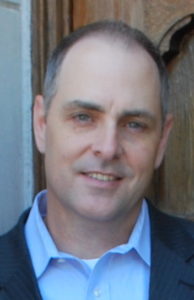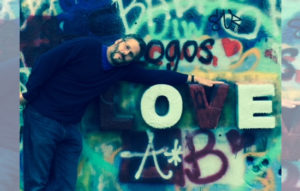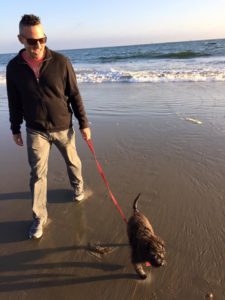LA Breakdown
https://www.pintsizepublications.com/wp-content/themes/osmosis/images/empty/thumbnail.jpg 150 150 Pint Size Publications Pint Size Publications https://www.pintsizepublications.com/wp-content/themes/osmosis/images/empty/thumbnail.jpgLA Breakdown
by Michael Steinberg
Fall Semester 1958
Los Angeles was not a hedonistic paradise in 1958. Certainly not for me in my freshman year at UCLA. Nor was it my buddy Billy Rubin’s Hollywood fantasy come to life. The one he would have donated his “left ball for” to chase all “those blonde beach bunnies.” And save for one spring season of fastpitch softball, it may have been the worst year of my life.
A New Yorker who had never been west of the Hudson River, I started college 3,000 miles away from all my familiar city landmarks. At 18, I wanted to keep playing baseball and had vague notions of someday being a writer. Yet all my dreams growing up in Rockaway Beach, Queens, quickly fizzled in the faraway Hollywood heat.
Everything was unexpected. My father moved the family, which included my mother and younger brother, coast to coast to manage a linen company soon after my high school graduation. The “dream job” took a traveling salesman off the road while promising security and more money, and the three of them moved to Sherman Oaks in June. I worked as a summer camp counselor back East and caught up with them a couple weeks before classes started.
Orientation Week: My father drives me through an eerie morning fog of Beverly Canyon. Through the mist I make out the narrow, twisting roads rising up to clusters of exotic homes in the Santa Monica Mountains. The chic enclave of Beverly Hills, Bel Aire, and Holmby Hills known as the “Platinum Triangle.” Approaching Sunset Boulevard, I catch my first glimpse of UCLA’s campus. The Westwood Hills in the distance led to the tree-lined main quadrangle with neo-Gothic and Romanesque buildings that resembled a backlot Hollywood movie set. Campus parking lots were dotted with a variety of nosed-and-decked ‘56 and ‘57 Chevys, stocked Pontiac GTOs, and MG, Triumph, and Austin Healy convertibles.
At registration I stood in a packed, sweltering gymnasium surrounded by guys and girls in shorts and cut-offs, all of them joking and kibitzing with each other. They looked and acted as if they’d known one other for years. Among the clusters of seemingly self-assured Los Angelenos — all blonde and sun-tanned. I felt self-conscious and hopelessly out of place. Me, a short, swarthy, dark-haired Jewish kid wearing tight black slacks and a black T-shirt with the sleeves rolled up almost to my shoulders. I wish I’d had the chutzpah to walk up to somebody, anybody, and casually introduce myself, a routine scenario on any crowded Manhattan street.
I stumbled through orientation, not even knowing what classes to take. To my surprise, I’m directed to take the English Placement Test. That afternoon, alongside several dozen freshmen, I checked off the boxes for the 100 short answer questions. The next day, I’m told I need to take Subject A, a.k.a. “Dumbbell English,” a required, no-credit course.
With my writerly dreams delayed, at least until I got through Subject A, I decided to try out for the freshman baseball team. After two days of practice, however, I realize I’m up against players who’d been high school stars. And the coach clearly had no interest in an undersized pitcher whose fastball barely clocked in at 70 miles per hour. Soon enough, I was pitching batting practice — a replay of my first three years of high school. The freshman team traveled with the varsity on weekends, so even if I made the team, the prospect of making road trips with little hope of getting into games seemed foolish and self-defeating. I turned in my uniform after a week.
The only thing left was my hope of becoming a cub sports reporter on The Daily Bruin, the school’s newspaper. My first assignment was to cover and summarize the results of the intramural league flag football games. The games were played simultaneously on the large, pasture-like fields next to the basketball gymnasium. But my father used the car that day and my ride to campus was an hour late. By the time I got to the intramural fields, the games had ended.
After the copy editor told me the final scores, I wrote quick, generic summaries of the games for his review. He may have not read the stories carefully. The next morning the editor-in-chief demoted me to night desk copy assistant. What gave me away was an extra point kick I credited as being the difference in one game. Turns out they didn’t kick extra points in flag football.
Feeling a bit rudderless, at least I could fall back on my family. But shortly after his own arrival in LA, my father started arguing with his new business partner. I was shocked to learn the family would soon move back to New York. By the end of September! If I stayed and somehow survived my first year, I’d have to find a place to live. I’d also be without a car.
Then a commuter school, UCLA had no dormitories. Los Angeles lacked a mass transit system, so thousands of undergraduates lived at home and drove or carpooled to campus each day. A smaller number lived with roommates in the rented apartments surrounding the campus, or in fraternity and sorority houses. Without wheels or a potential roommate, my only option was to pledge a fraternity.
Phi Sigma Delta interested me most. A seemingly unpretentious group, these relatively young men, some Korean War vets, were serious and down-to-earth. Instead of the gaudy rush functions of keggers, smokers, and formal dinner parties, Phi Sigs offered casual get-togethers for informal conversations. It felt like a good fit, as well as a place to stay as a live-in pledge.
My classes were befuddling to say the least. Our Subject A teacher forbade the use of the pronoun “I” in compositions. Repeat offenders would fail the course. With a litany of grammar rules to abide by, I attempted to give her what she wanted — canned, generic five-paragraph essays.
My Intro to Psychology course met in a lecture hall the size of a small theater. Lectures were broadcast on TV monitors installed at various points around the room. We met for an hour with a T.A. once every two weeks. The textbook, written by the popular, theatrical professor who taught the course, read like a statistics manual.
We couldn’t speak a word of English in my Italian class, which met five days a week. And my ignorance of the enrollment procedure landed me in an English History course meant for graduating English majors.
All freshmen had to take ROTC at UCLA, a state school. One afternoon a week, we marched in full dress army flannels in the 90-degree heat.
I flunked the midterm because I couldn’t take apart and reassemble an Army surplus rifle in less than three minutes. As punishment, I oiled rifles and spit-shined combat boots for two weeks.
It didn’t long take long to learn that pledging, like my classes, consisted of multiple episodes of discomfort and humiliation. Sometimes, after midnight, a group of brothers would wake up both live-in pledges to send us on beer and sandwich runs at the local bar and Village Deli (“The VD”). Nightly pushups, daily housecleaning chores, and hashing (serving) meals became regular routines. I even had to light cigarettes and cigars for upperclassmen.
At mixers and house parties, the older members treated me like a curio. I complied, mostly. Playing the role of New York Jewish street kid seemed like the only way I could get some attention. Members and their sorority dates would tease and bait me — demanding I pronounce words like “bottle,” “strength,” and “New York.”
In LA for almost three months and seeing only campus and the surrounding neighborhoods, I finally convinced a pledge brother to give me a tour of West LA. We drove down Santa Monica Boulevard and past University (Uni) High, in Brentwood, just on the edge of the Pacific Palisades, the upscale neighborhood in the hills where several movie stars lived. Compared to my old high school — a three-story, white brick building alongside elevated subway tracks, Uni’s manicured campus looked more like an exclusive New England college.
We drove out to the Santa Monica pier and watched blonde surfers and starlet wannabes play volleyball and ride the waves at Will Rogers State Park beach. A surreal November scene, it was my first real reminder of my hometown of Rockaway Beach. To escape fraternity pledging and savor that familiarity, I occasionally borrowed someone’s car and drive back — at night, alone.
My first-semester grades were pretty bad: a D in Italian, a C- in Psychology, and Cs in ROTC and English History. And the barely passing C- in Subject A re-confirmed the lack of confidence in my writing. My final grade point average, bordering between a C- and D+ qualified me for academic probation in the spring.
I was too depressed and ashamed to accept even the most well-intentioned invitations to visit pledge brothers’ homes over Christmas break. I’d spend two weeks alone in the house. On Christmas day, I was heartsick reading about New York’s four inches of snow. LA was 75 degrees and sunny. That night, I prowled the empty Westwood Village streets, killing time. No one around and only a single restaurant open. So I treated myself to a solitary dinner at Hamburger Hamlet. Trudging back to my room, I watched the sun disappear below the foothills. It was gorgeous and I felt guilty for feeling so miserable.
Spring Semester 1959
My classroom struggles continued in the new semester. Even though pledging had ended, and I had more time to myself, I felt increasingly detached from everything and everyone around me. I was just biding my time, waiting for the semester to end and making plans to go back home. I often found myself daydreaming about being back in New York. Sometimes, at a university back east — playing freshman baseball, writing sports for the school’s daily, chasing girls, and hanging out with friends and teammates.
In late February, I spotted a bulletin board signup sheet for an intramural league fastpitch softball team. A callout for player/managers among the fraternities, it stopped me in my tracks. A personal invitation to salvage something from a dismal year? Not to mention a chance to break out my cleats and glove again. So that night at dinner, I volunteered to be our frat’s playing manager.
Phi Sigma Delta didn’t draw many ex-high school athletes. In fact, the house’s head honchos claimed sports weren’t critical to their mission. Still a neophyte, I knew they’d be conflicted. After a late-night group debate, the fraternity’s advisory board decided (grudgingly) to make me the team’s playing manager.
In recruiting some players, I had to convince them we could win if we took it seriously. With the intramural season running early April through late May, we didn’t have much time to prepare. Within a week, I enthusiastically conducted tryouts, organized practices, and booked exhibition games with other fraternities.
Immediately, I saw we were an unusually determined, even single-minded group. Unlike the “jock houses,” we didn’t have a team of former high school stars. We more resembled savvy role players, most with some skill and understanding from American Legion ball.
Plus, we all had something to prove. The ex-pledges had been underlings for almost six months, and the upperclassmen had been perennial losers for years. I sensed our collective determination and camaraderie might be our strength.
I set up a five-day afternoon practice schedule. To make it fun, we practiced as if playing. We replicated game conditions, a strategy I adapted from my old high school baseball coach. It’s essentially a game scrimmage, where everyone got a chance to bat, pitch, or play the field. We’d practice things like bunting, stealing, and hit-and run plays — all under game conditions — three outs for each half inning until we reached seven.
In the first Saturday exhibition game, we defeated Pi Lambda Phi. The previous year’s runner-up, they assumed they’d take us easily. It was the first time we’d beaten them in any IM sport, building our confidence enough to believe that we were the better team.
As the season progressed, we won most of our games. My hunch about receiving support from fellow fraternity members proved true. Even a fraternity that considered itself above the fray of sports grew more enthusiastic about winning. Perhaps they even became a little less critical about me, the guy often called “the greaseball from New York.”
We beat an old rival, ZBT, another first for us, and won our final five games. What a turnaround. Teammates, even the upperclassmen, paid attention to my strategic decisions. No one even griped about who played or who sat.
The most gratifying reward may have been our camaraderie. We often played with a passion and selflessness that surprised me. In fact, we played so well together, I cut practices back to three days a week.
That decision let me pay more attention to my own play. My occasional achievements gave me as much satisfaction as managing did. Playing shortstop for the first time since sixth grade, I started a few 6-4-3 double plays and stroked the game-winning hit against ZBT. For those brief moments, I relived my athletic best as a high school closer.
Before the end of April, we beat the Pi Lams again, as well as the Delts and Fijis, two other jock houses that routinely dominated us in all games. In mid-May, we won our flight championship and made it to the championship game, where we lost a one-run game to the Fijis. Naturally disappointed, we could still relish the fact that this was the furthest a Phi Sig team had gotten in any intramural sport.
Contributing to the team’s success, I felt a sense of accomplishment and belonging, feelings elusive to me in my LA stay. For those last two months of school, I put all my drive into softball. I never considered putting that effort into my schoolwork.
My brief moment in the sun, I was getting toasts and grudging compliments. Whether they’d admit it or not, even the staunchest resisters in the fraternity wanted to play on a winning team. From mid-season on, nobody missed a practice without first clearing it with me. Maybe I had a knack for being a player-manager. I liked being in charge. For a time, I even toyed with the idea of becoming a physical education major, thinking coaching would be a good career fit.
Still, finding my place on an intramural softball diamond was not the deux-ex-machina to make my life right in LA. I don’t underestimate the importance of the camaraderie, a sense of belonging, or the achievements themselves. When the season ended, this was a pyrrhic victory and temporary liberation.
The game kept me from dwelling on my failings and deepest insecurities. This was, after all, my only real accomplishment in my eight months at UCLA. In LA, in unfamiliar surroundings, with no one to guide me, I’d let everything important slide. By the end of the year, I’d pretty much given up on my studies. My final report card confirmed it: a D in Italian, a C in English, and three C- marks in my other classes. My grades fell one point below the average I needed to get off probation.
There is, however, some takeaway from this troubling, confusing year. Through this interlude with an intramural softball team, I rediscovered something of my passion, resiliency, tenacity, and determination — all of the things I’d abandoned. At UCLA, at 18 and 19, I couldn’t adapt to my surroundings. But in the fall back in the familiar world of New York, I would begin my freshman year all over again. A second chance perhaps to redeem myself.


 u feel are important, or great, or beautiful will be the same for your reader. Just be accurate and true in your writing, and all of that will come across because of its inherent value. There’s no need to force value on anything. For me, these moments, these people and places, already have significance. There’s no reason to reach for metaphor to invest them with meaning. Life provides its own metaphors, actually.
u feel are important, or great, or beautiful will be the same for your reader. Just be accurate and true in your writing, and all of that will come across because of its inherent value. There’s no need to force value on anything. For me, these moments, these people and places, already have significance. There’s no reason to reach for metaphor to invest them with meaning. Life provides its own metaphors, actually. In his essay “Poetry and Happiness,” Richard Wilbur talks about the poet’s “itch to call the roll of things,” the pleasure we take in making lists and catalogues, suggesting the totality of things by the casual piling up of particulars. “When a catalogue has a random air,” says Wilbur, “when it seems to have been assembled by chance, it implies a vast reservoir of other things that might just as well have been mentioned.” Thus the list in the last line of that poem: “Pomeranians, sputniks, saxophones.” A list, after all, is three or more items. And I love the randomness of that particular list, which (mea culpa) I think I actually lifted from one of T.C. Boyle’s novels. (I forget which one — I’ve read so many of them.) (“Good poets borrow; great poets steal.”) But in this way, I think, free association has a way of sort of getting at the totality of things; just a few parts, however small, are able to include by synecdoche the wonder of the whole.
In his essay “Poetry and Happiness,” Richard Wilbur talks about the poet’s “itch to call the roll of things,” the pleasure we take in making lists and catalogues, suggesting the totality of things by the casual piling up of particulars. “When a catalogue has a random air,” says Wilbur, “when it seems to have been assembled by chance, it implies a vast reservoir of other things that might just as well have been mentioned.” Thus the list in the last line of that poem: “Pomeranians, sputniks, saxophones.” A list, after all, is three or more items. And I love the randomness of that particular list, which (mea culpa) I think I actually lifted from one of T.C. Boyle’s novels. (I forget which one — I’ve read so many of them.) (“Good poets borrow; great poets steal.”) But in this way, I think, free association has a way of sort of getting at the totality of things; just a few parts, however small, are able to include by synecdoche the wonder of the whole.